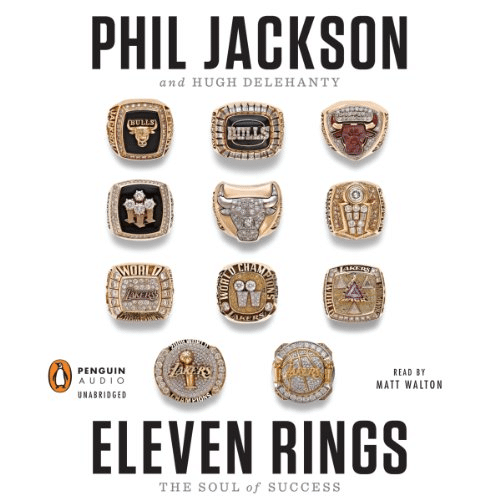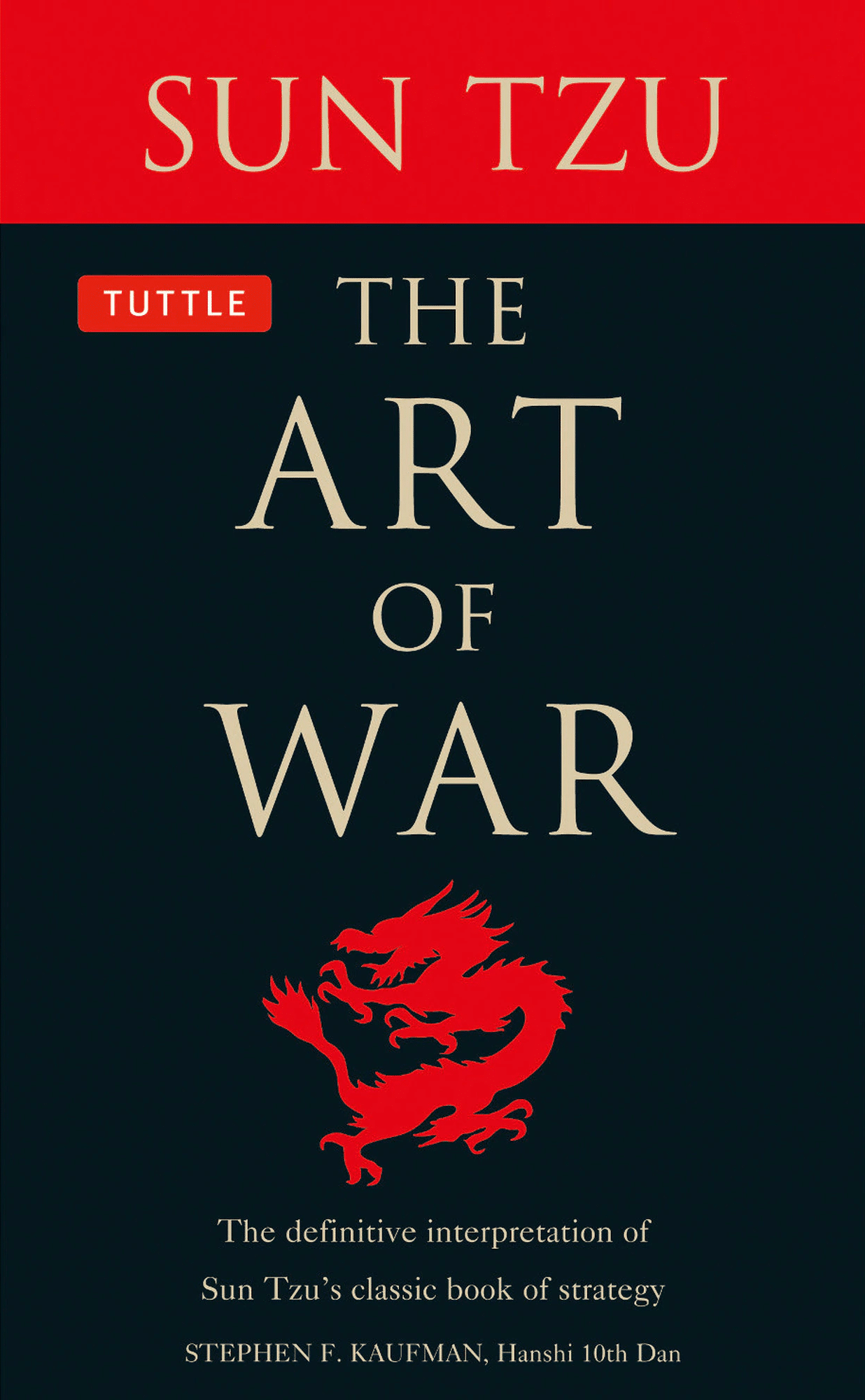Let’s face it—sales management books don’t appeal to everyone.
It’s not that they don’t add value, but sometimes it can feel like they don’t captivate us in the same way a three-part story does—with a beginning, middle, and end (and maybe a good villain or two).
Well guess what? Sales management books aren’t just self-help-y revenue streams for retired “sales gurus” and ex-sales-superstars.
There’s actually a lot we can learn about sales management from different types of stories—fiction, memoirs, comics, and psychology, just to name a few. Used in conjunction with the right sales apps and tools, these books can really level up your sales game.
The secret to getting the most sales-related knowledge out of any book is to go in with the right frame of mind. Just like how you read a cookbook with the intention of following its recipe, read books with the intention of seeing how the underlying insights relate to your work as a sales manager.
Maybe you just got promoted and want to learn more about transitioning from a sales rep to a sales leader. Or maybe you want to level up your game as a leader so that you can inspire your team with new ways of thinking.
Whatever the case, we’ve lined up a list of the eight best non-traditional sales books to help you spark new ideas for how to build a winning sales team.
1. Eleven Rings: The Soul of Success by Phil Jackson

“As a leader your job is to do everything in your power to create the perfect conditions for success by benching your ego and inspiring your team to play the game the right way.”
Discover: Bringing out the best in others
What’s it about: Over the course of his career, Phil Jackson led the Chicago Bulls and Los Angeles Lakers to an all-time record of an astounding 11 NBA championships.
More than just about making the right moves on the court, Jackson describes how he coached “uncoachable” personalities on the team to embrace selflessness in order to achieve a goal much greater than themselves. By managing different abilities on the team skillfully, they played together harmoniously and victoriously.
Sales management tip: Sales, like sports, is a team game. As the coach of your team, it’s your job to create a culture where all your players thrive—not just the select superstars.
As easy as it may be to shine the spotlight on your top sales performer(s), be mindful of the demotivating effect this may have on the rest of your team. A handful of people succeeding doesn’t necessarily help your whole team win. Even as you’re recognizing the strengths of individual contributors, don’t forget about the ones who don’t get as many opportunities to shine. Allow them to excel where they’re strongest and then manage the members of your team so that different strengths play together.
For instance, identify who on the team excels at relationship building and who holds the most technical knowledge. Make these competitive advantages known, let each salesperson play to their advantages—and help them build up their skills if they’re not as strong in those areas.
2. Never Split the Difference by Chris Voss

“This is listening as a martial art, balancing the subtle behaviors of emotional intelligence and the assertive skills of influence, to gain access to the mind of another person. Contrary to popular opinion, listening is not a passive activity. It is the most active thing you can do.”
Discover: Negotiation techniques
What’s it about: This book takes you inside the mind of Chris Voss, FBI’s lead international kidnapping negotiator. It’s an invaluable resource for anyone who’s ever had to deal with any type of negotiating, no matter how big or small. Voss reveals nine effective principles to help you get a competitive edge in persuasion by focusing on emotional intelligence and trusting your intuition. It’s not just written for the force either. You’ll be surprised how applicable lessons from an FBI big shot are for everyday situations.
Sales management tip: So many acts of sale are about subtle negotiations. One day you’re negotiating to get an hour of someone’s time instead of 30 mins. The next, you’re negotiating on pricing you want to settle on.
The ability to influence how a decision falls is about attunement. So often, when we think of negotiating, we think “how do I convince this person to believe in what I believe in?” But that’s not necessarily the right approach.
Positive negotiation is about having empathy to recognize where your prospect is coming from and meeting them where they’re at. Truly effective salespeople tap into all the verbal, paraverbal, and non-verbal communications at play and stay attuned to how to respond in a way that makes the prospect feel understood.
3. Ultimate Spider-Man by Marvel Comics

“If you have the power to change the world, you have a responsibility to use it. […] I’m just asking you not to squander it. Not try to be less. Because I know you’ve got it in you to be more.”
Discover: Facing setbacks
What’s it about: A true classic, Spider-Man is a story about how a teenage boy is faced with family tragedies and is given the power to take responsibility within his own life.
Even if you’re not a comics fan, it’s easy to appreciate the lessons we learn from Spider-Man. When it comes to the choices we have in the face of adversity, either you can let it overpower your well-being, or you can choose to take a stand and rise above it.
Sales management tip: Having a tough skin in sales is paramount since success is never guaranteed and rejection is inevitable. Opportunities can get lost to competitors, while some sales never get to close. Even the greatest teams face setbacks.
The message is this: to discover our strengths, occasionally we have to face losses. In the moments when we fall, we also learn how to do better next time. In the face of adversity, the team looks towards their leader to place them on a strong path forward with improved strategies and a bright outlook.
4. Quiet: The Power of Introverts in a World That Can’t Stop Talking by Susan Cain

“It’s so easy to confuse schmoozing ability with talent. Someone seems like a good presenter, easy to get along with, and those traits are rewarded. […] They’re valuable traits, but we put too much of a premium on presenting and not enough on substance and critical thinking.”
Discover: Your potential as an introvert
What it’s about: What does a charismatic leader look like? Is it someone who’s decisive, asserts themselves unapologetically and is unafraid to say what needs to be said? Or can it look like someone who’s calm during chaos and is consistently accountable with unmovable patience?
It’s all those things and more. This book dispels a lot of the stereotypes surrounding what we think a great leader looks and sounds like. It encourages us to see introversion as something to be celebrated, not cured.
Sales management tip: If you happen to be a natural introvert, honor your own work style rather than try to adapt to the norm of big personalities. While both the role of sales and being a people-leader requires you to spend a lot of time in the presence of others, introversion doesn’t mean you don’t succeed in those environments.
Be sure to find the space you need to recharge. Chances are that you have natural powers in concentration and critical reflection. Prioritize the specific abilities that make you you in order to uncover a management style that’s unique and authentic to yourself.
5. How We Decide by Jonah Lehrer

“The uniquely human areas of the mind depend on the primitive mind underneath. The process of thinking requires feeling, for feelings are what let us understand all the information that we can’t directly comprehend. Reason without emotion is impotent.”
Discover: How people make decisions
What it’s about: If you want to understand how people make choices, here’s a good one for you. Lehrer breaks down how any decision is made up of a number of different inputs happening at once. As much as we pride ourselves on using logic to make informed choices, in actuality we’re driven also by a blend of gut, intuition, emotion, and instincts.
Sales management tip: Understanding the behavioral economics of what motivates a prospect’s buying decision is huge. Share it with your sales team so that everyone can use the knowledge to come up with good sales conversation starters.
What’s one way of putting this into practice? When prepping for a sales meeting, in addition to gathering the necessary facts and background information, make time to also focus on making a strong first impression.
According to Lehrer, humans make split-second decisions based on instinct—how someone or something makes them feel in a moment’s time. How many times have you heard someone say, “I don’t know what it is, but there’s just something I like about her.” Being likeable is the ultimate currency.
It sounds obvious, but it works. A friendly greeting, warm smile, good posture, open body language… These all contribute to creating a sense of likeability—and might be the thing that tips a decision in your favor.
Pro-tip: In times where you can’t meet with a prospect in-person, try video meetings, such as RingCentral Video. This way, you can meet face-to-face with your prospects even if you are hundreds of miles away:
6. Dare to Lead: Brave Work. Tough Conversations. Whole Hearts. by Brené Brown

“Reward great questions and instances of ‘I don’t know, but I’d like to find out’ as daring leadership behaviors. The big shift here is from wanting to ‘be right’ to wanting to ‘get it right’.’”
Discover: Being a new leader
What it’s about: Leadership isn’t about power or status. What makes a good leader continues to evolve as we see more and more qualities such as empathy and care take a front seat. A good leader is able to see the potential in both people and ideas. Brené Brown shows us what qualities make up an effective leader in a way that’s modern, relevant, and doesn’t feel like it came out of a business textbook.
Sales management tip: If you’re stepping into the role of leading others for the first time, this book is a good place to start. In your shift from focusing on just your personal development to your team’s development, learn to understand where everyone on the team is at. What motivates their work on a personal level? What worries do they have about their job? Connecting with individuals on this human level opens up a new space where everyone feels a sense of trust and respect with one another.
And if you’re not a new leader, there’s always room to grow into the type of leader you want to be more of. We spend so much of our lives at work that taking care of those close to us should extend to those we work with. It doesn’t have to be hard. Checking in on your team’s emotional well-being and responding with compassion, either in-person or with tools that let you message, call, meet (hey, sometimes you need options), can leave a lasting impression.
7. The Art of War by Sun Tzu

“The general who does not advance to seek glory, or does not withdraw to avoid punishment, but cares for only the people’s security and promotes the people’s interests, is the nation’s treasure.”
Discover: Achieving mutual interests
What’s it about: An incredible treatise on Chinese military strategies written over twenty five hundred years ago still remains as relevant as ever in the world of politics, law, and business. With an interesting philosophical approach on resolving conflict through mutual interests, this book’s importance remains present in everyday life even when stripped of its military application.
Sales management tip: There are so many small “wars” we wage on the daily, such as getting through the gatekeeper to speak with a prospect, or perhaps dealing with an irritable, impatient prospect during a sales pitch.
Winning at “war” is less about defeating an opponent and more about creating shared goals. At the end of the day, the path that offers the least destruction is beneficial for both sides.
How does this apply to sales? Well, if your sole mission is to close sales and meet quotas, there’s a good chance you’re not focused on maximizing shared interests for both you and your prospect. By stepping back and taking into account how your solution genuinely helps the other side, you might just gain a greater victory (aka, signing a bigger deal).
8. On the Road by Jack Kerouac

“The best teacher is experience and not through someone’s distorted point of view.”
Discover: Experience has no replacement.
What it’s about: A restless story written in a single paragraph that stretches over 400 pages revealing the protagonist’s reckless and vibrant-filled journey across America. Throughout this constant motion, he faces disputes, crime, and poverty—all of which he learns from in order to endure the adventure ahead.
Sales management tip: Any role you’re in, particularly if you’re a new manager, is going to come with its obstacles. The odds are stacked against you that everything you do will end up right the first time, but that’s okay.
No matter how many sales management books you read, unexpected problems will arise that will make you feel uncertain. And though it’s very helpful, knowledge is no substitute for real experience. Only through trial and error can you learn how to course correct proactively.
This also applies to your role as a leader of people. As a proven successful salesperson, it may be tempting to “show” others how it’s done rather than “teach” others. Remember, everyone needs to go through their own experiences to learn for themselves.
Non-traditional sales management books worth reading
“How can I become a good sales manager?”, you may be wondering.
It starts with a strong foundational knowledge of what a respected leader looks like, which you can get through these books, but it doesn’t stop there.
Applying what you learn will help solidify that knowledge, and don’t forget to give your team the tools it needs to succeed, whether it’s a communication tool or CRM.
Originally published Mar 16, 2020, updated Feb 26, 2021







